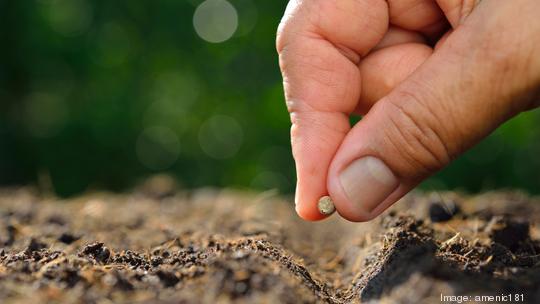
Earlier this year, Big Idea Ventures launched the Generation Food Rural Partners fund—a collaboration with universities to develop and commercialize food products and agricultural innovations to help fuel economic growth in rural areas.
In April, the New York venture capital firm announced its ninth and newest partner: University of Massachusetts Amherst.
With UMass Amherst having the top food science program in the country, it’s no surprise that Big Idea Ventures wanted the Western Massachusetts university to join the Generation Food Rural Partners (GFRP) fund.
According to David Sela, an associate professor in the university's Department of Food Science, UMass Amherst is an ideal partner for the venture capital firm because of its flexibility and ability to conduct research on a variety of topics. "The bottom line is we want to make sure that we support the food industry and consumers in building a more sustainable, equitably distributed food system in the future," he said.
The GFRP fund is focused on developing innovations in three core areas: food, protein and agriculture.
“When we talk about food...It's not just products, not just ingredients," Thomas Mastrobuoni, chief investment officer at Big Idea Ventures, said. "It's the process, packaging, team members’ safety at the plant, anything that goes into creating products, all the way from the farm through to what the consumer is buying."
They have a "special focus" on alternative proteins, he said. "How do we make those proteins better, more sustainable, more healthy for people? On the agriculture side, we can't talk about food without talking about agriculture. How do we help improve soil health? How do we help grow the foods that we need?”
UMass Amherst researchers will be looking at topics such as the physiology of food once it’s ingested by humans, and the effects of polyphenols and cannabinoids in food systems. As for agricultural innovations, the university has been discussing ways to develop sustainable plant-based and meat alternatives.
Besides researching and developing agricultural innovations, the GFRP collaboration is also focused on commercializing the universities’ intellectual property. Based on the type of innovation, this commercialization could happen in a variety of ways. For example: Commercializing a consumer product would look different compared to a hardware product that’s being sold to a company.
“They're looking to commercialize academic-led intellectual property... they're looking to take what we learn in the laboratory and commercialize that, so that we can impact people in two ways," Sela said. "One, improve sustainability, safety, deliciousness of food...as well as drive economic development around the country.”
Big Idea Ventures also plans to invest in developments that have the strongest commercialization potential. According to Abby Lyall, vice president of Big Idea Ventures, these investments will not be “dorm room funds,'' or meant for student startups.
These investments are strictly for the commercialization of professional research developed by these universities, Lyall said. The startups funded by Big Idea Ventures could focus on anything from food waste preservation technology to greenhouse gas emissions to plastics and packaging.
“One key aspect of our model is we're going to be bringing in executives to run these new companies that we've set up," Lyall said. "And these new executives will have to have lots of experience in the area that the startup will be innovating in. If it’s in innovative ingredients, we’ll bring in somebody that has lots of experience in the ingredient space.”
Once researchers are identified, the venture capital firm will tell them that it wants to either license or buy the intellectual property. From there, the university can contribute the intellectual property to the new venture and become an equity partner with Big Idea Ventures. Or, the venture capital firm can create a new company that will license the IP from the school.
“We intend to take the researcher out of the lab and create a Chief Technology or Science Officer position, which will serve as an interim role until the [intellectual property] is completed, the product is ready to go to market," Mastrobuoni said. "And it's our job to enable the researchers with supporting role functions, whether it's finance and accounting, marketing, legal, recruiting, and fundraising. We're going to surround them with the talent they need to succeed.”
Sela, the UMass Amherst associate professor, said that he wants to accomplish two goals during the program.
“The first are the manifest goals of the fund, so to support and to promote rural development—economic development in rural communities, through sustainable food and agriculture," he said. "That is the main goal. And the second goal is to further solidify our standing as leaders in food and nutrition innovation at UMass Amherst and as a broader network of universities, domestically and internationally."



